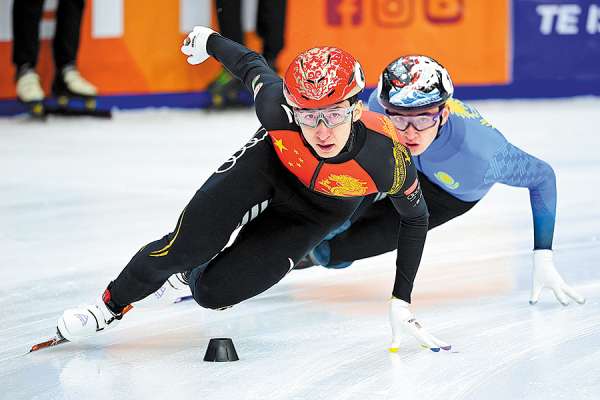The Korean Sport and Olympic Committee announced on Tuesday that it intends to file a protest with the Court of Arbitration for Sport and the International Olympic Committee over the disqualification of two of its speed skaters in the men’s 1,000 metre semi-final at the 2022 Olympic Games in Beijing, China, IgbereTV reports.

Korean skater Hwang Dae-heon was penalised for a “illegal late pass,” while teammate Lee June-seo was penalised for a lane-change infraction, both of which caused contact with other skaters.
Yoon Hong-geun, president of the Korea Skating Union, made it very clear that they were not going to accept the outcome. He said: “We will explore all available ways and means to ensure that such an unfair judgement will not be made again.
“We’ve been receiving requests from sport officials and ordinary citizens to pull out of the Olympics altogether and bring the athletes home, but we are not at that stage yet.”
The judgments favoured the Chinese competitors, who not only proceeded to the finals but also took home gold and silver medals.
China has previously profited from penalties and disqualifications imposed on its competitors in Beijing speed skating competitions.
China’s Ren Ziwei won the men’s 1,000m final on Monday when a collision with Liu Shaolin Sandor of Hungary resulted in a punishment for the Hungarian, who actually crossed the finish line just ahead of his opponent.
The day before, at Capital Indoor Stadium, questions were raised when China’s mixed relay team got to the final after skaters from the US and Russian Olympic Committees were disqualified for apparent obstruction. South Korean skater Kwak Yoon-gy expressed his dissatisfaction with the outcome.
“I was watching that race unfold. I figured China, ROC and the U.S. would get penalised,” he said. “But as the review dragged on, I figured China was going to be allowed to progress. And when the call was finally made, I found it difficult to accept it.”
The Chinese team would go on to win gold, confirming what many, including Kwak, believe is an unfortunate case of host-country bias






